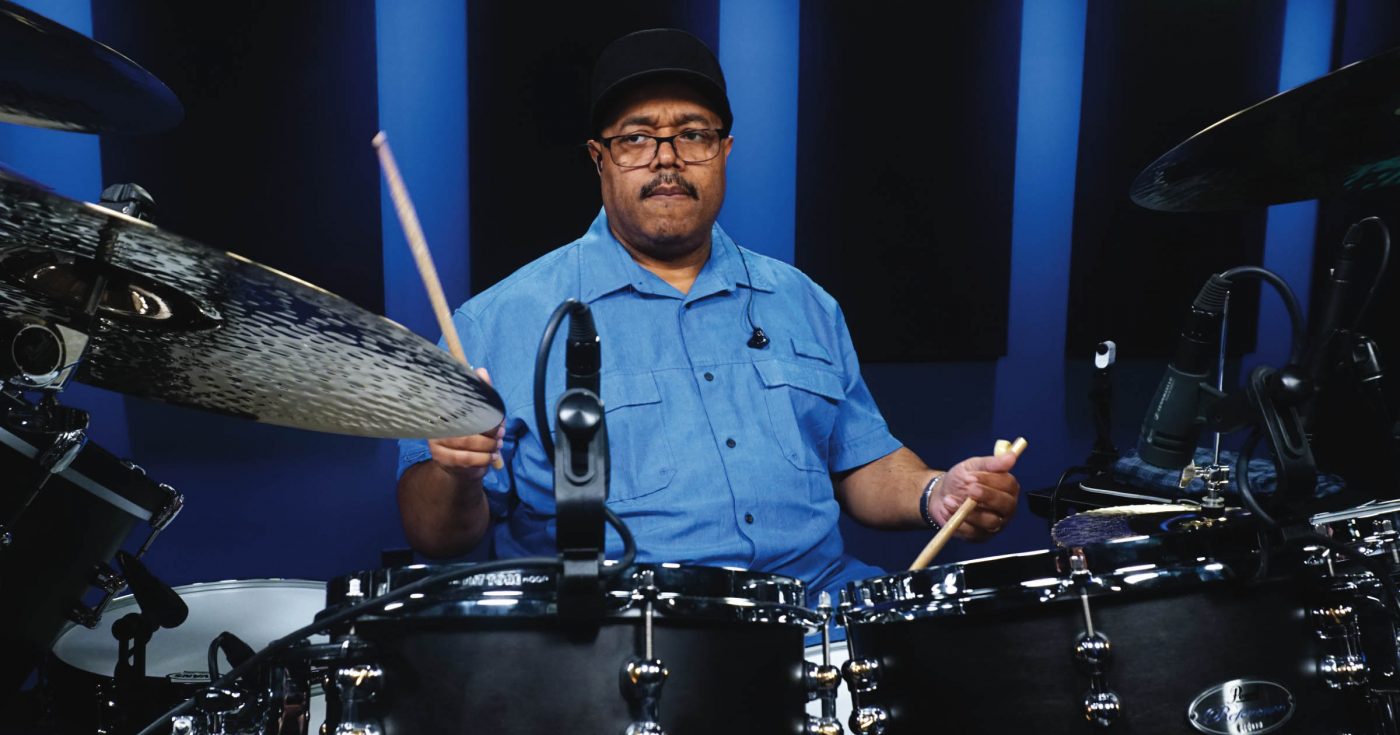Rob Brown recently made a video asking an interesting drumming-related question: can you learn ‘pocket’? You might find it interesting to watch the video yourself before reading the rest of this article. The general message from Rob appears to be that he thinks it’s 50-50. In other words, it’s partly natural, partly practice. My short answer to the question is ‘yes, you can learn pocket but some people might find it easier than others’, which is somewhat similar of a conclusion. However, I think there’s a lot to unpack here and a lot of minefields to try to avoid, which I think is a level of depth that the video does not really go into. I’m going to attempt to deconstruct this question in a more systematic way to explain the nuances behind my short answer.
What on earth is ‘pocket’?
In the video, Rob spots the one key problem with this question early on. What on earth is ‘pocket’? It’s a term flung around in drumming circles a lot, and apparently it seems everyone has a slightly different idea on what it is. The thing is, there are a lot of artsy terms and phrases that are not well defined. Describing someone to have the ‘it factor’ is something similar. Nobody knows what it means, but the gist is that people feel as though there is some quality to something that they cannot put into words. The issue is when this lack of precision in words leads to weird conclusions. Quite often, when people can’t describe something, they ascribe it to the mystical or magical. Maybe ‘pocket’ or ‘feel’ is this fantastical force that some people are born with. Maybe it’s wired into their brain or DNA. But really, what one should be asking is ‘well what exactly is it that is causing people to consider one person to have pocket and another person not to?’.
In theory, you should be able to learn anything that is a skill that can be well-defined. You can’t learn to be taller. That’s well-defined but not a skill. On the other hand, having ‘feel’ is sort of a skill that you can improve with practice, but it’s hard to know what to practice to improve it because it’s not well-defined. In order to know how to learn pocket, you have to be able to define it.
Pocket seems to be a subjective term, and yet, like ‘quality’, if you get enough drummers in a room to compare drummer A to drummer B, they may well be able to agree who has the better pocket. If this is indeed true (I haven’t done the experiment myself) it would mean that pocket does have some sort of definition and therefore it should be learnable.
What pocket really is
From all of the conversation I’ve heard around pocket from people like Dennis Chambers and so on, it seems to be a combination of timing and dynamics. One of the reasons a real drummer sounds better than a programmed drum machine is because even though they may be playing the exact same groove, the individual variations in human playing can generate an appealing sound. They might play some notes louder and some quieter (dynamics). Or they might create a really mild swing where some of their hits are just before the main metronome pulse and some are just after (time).
But any human will generate natural variation when they try to play something. A total beginner will have an awful lot of variation, in fact. But most wouldn’t consider their attempts to be that appealing to the ear. Why not? It’s because there has to be a particular pattern to the timing and dynamics. In a jazz improvisation, you can often go completely outside the key and still sound good if you know exactly where and when to come back in. The same can be said about drumming. You need to keep the underlying click in mind all the time (something that Rob also mentions in the video), but then be selective about when to weave in and out of it to create a feeling of flow like ripples on water (there I go with my own imprecise artsy terminology).
Can you learn it?
Let’s summarise. In order to learn something, you need to define what it is you need to learn. If we say that pocket means something like ‘to create an aesthetically pleasing flow to a rhythm by implementing variations in the positioning and dynamics of notes within a groove’, then it’s defined reasonably well enough that you can learn it. You can learn how to vary dynamics by practicing regular drum patterns but with accents on different notes. You can learn how to vary positioning by practicing regular drum patterns but by playing slightly behind or ahead of the pulse.
So you can learn how to achieve pocket. But how do you learn when to do these things? How do you know which notes to accent and which not to? How do you know which notes to vary the position of? This is where I think people start to argue that it’s something natural. In the video, Rob uses the analogy of being funny. He says many people can tell the same joke, but some will make you laugh and some people can say almost the same words but come across as less funny. That may be true. However, what if the least ‘funny’ person from that bunch studied what the funniest person did to get laughs and trained themselves to do this?
Natural ability and talent is no doubt a thing. Some people will find it easier to pick up sticks and just play. That’s how it is. However, once you’ve identified what it is that sounds appealing, then anyone can program themselves to learn those patterns. The question is always going to be whether the effort required is something you are willing to go through or not, because it is almost certainly true that some people require less of it.
Therefore, going back to the main question. Can you learn ‘pocket’? Once we have defined what it is, then yes, you can learn it. Some people will inevitably find it easier than others due to natural ability. But if you aren’t that good at it and studied some drummers that are well known for their ‘pocket’ to try to deconstruct and imitate what they do, then there seems to be no theoretical reason why you can’t learn it. I think the biggest danger in creative circles is to attribute things to the esoteric, because it can put people off trying if they believe there is something intrinsic within themselves that makes them unable to learn a skill. It might not always be a walk in the park, but there’s pretty much always a way.

